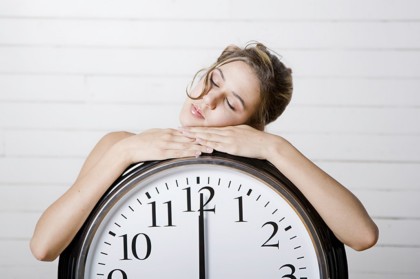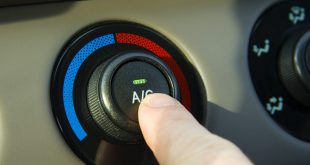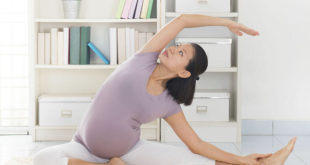
Walk into your bedroom in a decade or two and you’ll be entering the ultimate tech zone.
Tucked away in your pyjamas, sheets, mattress, lamp, curtains and walls will be technology that’s working constantly to ensure you get the best possible night’s sleep. That’s the theory of Australian futurist Morris Miselowski, who says: “As we move towards becoming a ‘wellness society’, where we’ll be living longer with the help of technology, our beds and sleeping habits will evolve, too.”
What’s in store for our sleep
Miselowski is the author of The Future of Sleep, a research paper written in conjunction with bed manufacturer Sealy, in which he predicts that beds are about to undergo a fundamental change from passive to dynamic.
“Beds will know from a concert of information what’s going on inside us, and will change accordingly,” he explains. “They will become softer or firmer, provide ambient noise, adjust the temperature, they’ll even nudge us into a different position if we’re snoring.”
In a few decades this technology will all be invisible, hidden in clothing, furniture and the home itself, Miselowski believes. “There will be no blinking lights, it will be a pure space.”
This scenario is much closer than you might think. The increasing popularity of wearable tech devices, and particularly sleep gadgets, are a sign of how willing we are to let technology “orchestrate” the bedroom, Miselowski says.
Meanwhile, the technology for a dynamic bed is already here. In the US, brands of tech-beds boast mattresses with adjustable firmness and elevation, in-built massage functions and the ability to monitor your breathing, movement and heart rate. However, these features come at a big cost, with some designs retailing at about $8500.
We’re also moving closer to a centralised storage system for our personal health data, with Apple and Google announcing that their next-gen software will have a platform – HealthKit and Google Fit, respectively – at which health information can be stored and apps can share data.
How this will affect our health
So what does this mean for people with sleeping difficulties? “Between 20 and 30 per cent of Australians have a problem with either falling asleep or staying asleep,” Australian sleep expert Dr Carmel Harrington says.
The cause can be physical (such as sleep apnoea, the pauses in breathing or shallow breathing caused by the walls of the throat closing) or psychological, stemming from stress, anxiety and negative associations.
Harrington believes that the predicted sleep-associated technology will help with such problems. “Optimising our sleeping conditions, such as the temperature, is really important for a good night’s sleep,” she says. We’ll also be more knowledgeable about our sleeping habits. Devices that monitor breathing and snoring, and can lead to a diagnosis and treatment of sleep apnoea, are already making a difference.
But technology can only help up to a point. “If you have anxieties that you’re not dealing with, it doesn’t matter if your bedroom is like nirvana, you won’t get to sleep,” Harrington says. Anxiety, depression, what we eat and drink, and what we do in the hours before bedtime all play a role in the quality of our sleep.
There’s also the matter of how technology as a whole is keeping us awake. “We still need between seven and nine hours of sleep a night,” Harrington adds. “Our brain and body do things during sleep that can’t be done at any other time. Yet technology keeps us alert and steals our sleep. Fifty years ago we went to sleep naturally because after 10pm there was nothing to do. Now we can be Skyping at 2am, or watching movies all night, hence why we’ve had to create a discipline around sleep.”
10 ways to sleep better tonight
There’s plenty we can do to improve our sleep quality. The Complete Guide to a Good Night’s Sleep by Dr Carmel Harrington ($29.99, Pan Macmillan Australia) lists 10 key sleep practices:
1. Have a regular bedtime and awakening time
This strengthens our circadian cycles, making going to sleep at night much easier.
2. Don’t sleep during the day
This can decrease the sleep chemicals in your brain, reducing your sleep drive.
3. Avoid alcohol
Although it has an initial sedating effect, this quickly dissipates and what ensues is a fragmented and disturbed sleep, which is known as “rebound wakefulness”.
4. Avoid caffeine after midday
Caffeine is a potent stimulant and masks our level of tiredness. One cup can still have an effect five hours later.
5. Stub out cigarettes within two hours of bedtime
Nicotine causes a rapid release of adrenalin and an increase in heart rate, blood pressure, metabolic and breathing rates – the opposite to preparing for sleep.
6. Don’t exercise within three hours of bedtime
Exercise has many benefits but has the potential to disrupt sleep. It increases our body temperature, heart rate, and metabolic rate, all of which increase alertness.
7. Finish eating two to three hours before bedtime
After we eat, our digestive system works to break down the food, increasing our metabolic rate and body temperature, which can make it difficult to sleep.
8. Only use the bedroom for sleeping and sex
The bedroom isn’t the place for TV, work or computers. There should be nothing in there to increase alertness or anxiety.
9. Keep the bedroom cool, dark, quiet and comfortable
A healthy sleep environment is crucial in maintaining sleep.
10. Adopt a going-to-bed routine
Half an hour before bed, try having a warm to hot shower and doing a relaxation exercise of some kind.
3 apps to assist sleep
- Sleep talk recorder
$1.29 from the App Store; free from Google Play. Get solid evidence of any sleep-talking or snoring.
- Relax & Rest Guided Meditations
$1.29 from the App Store; $1.10 from Google Play. Three meditations of varying lengths will help you relax deeply.
- Sleep cycle alarm clock
$1.29 from the App Store; $1.99 from Google Play. This alarm clock wakes you in the lightest sleep phase, helping you to get up feeling rested and relaxed.
Source: bodyandSoul
 We are sharing information for knowledge. Presented by. SocialDiary.Net
We are sharing information for knowledge. Presented by. SocialDiary.Net



